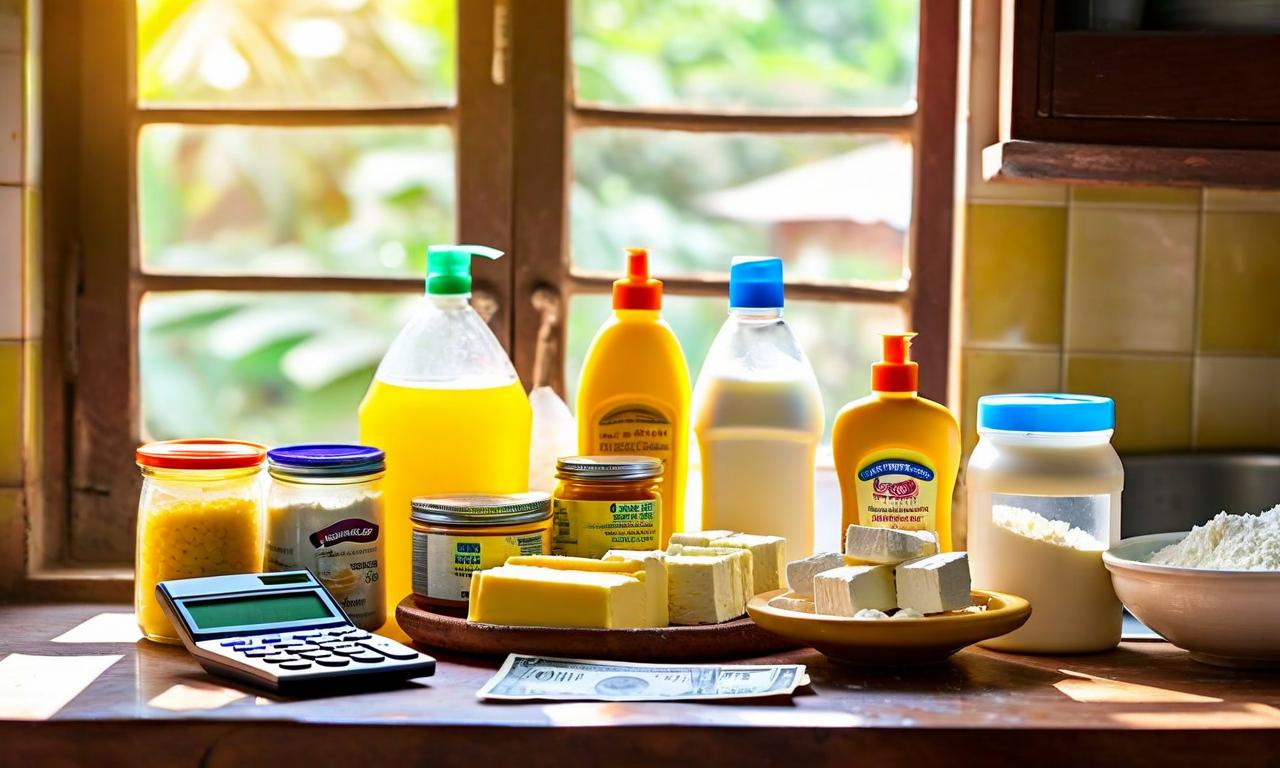GST Rate Cuts on Daily-Use Items Set to Boost Consumption and SME Growth
The GST Council is proposing significant tax rate reductions on various daily-use items, potentially moving them to the 5% bracket from higher slabs. Products like ghee, butter, toothpaste, shampoo, paneer, and milk powder may see reduced rates. The changes aim to stimulate consumption and benefit SMEs. Consumer durables sector expects a 'golden period' from FY2026 to FY2031. The food industry anticipates increased consumption and reduced dependency on edible oils. While essential items may see lower rates, luxury goods could face a higher 40% GST rate. The final decisions will be made during the upcoming GST Council meetings on September 3-4 in New Delhi.

*this image is generated using AI for illustrative purposes only.
The Goods and Services Tax (GST) Council is considering a significant revamp of tax rates, with proposed cuts on various daily-use items expected to stimulate consumption and benefit small and medium enterprises (SMEs). The upcoming changes, set to be discussed at the GST Council meetings scheduled for September 3-4 in New Delhi, could have far-reaching implications for both consumers and businesses.
Proposed Rate Cuts on Essential Items
The GST revamp proposes moving several daily-use items from higher tax slabs to the 5% bracket. Products that may see reduced rates include:
- Ghee
- Butter
- Toothpaste
- Shampoo
- Paneer
- Milk powder
These items are currently taxed at 12% or 18%, and the proposed shift to 5% is expected to make them more affordable for consumers.
Impact on Consumer Durables and Consumption
B Thiagarajan, Managing Director of Blue Star, expressed optimism about the potential impact of these rate cuts. He anticipates that the period from fiscal 2026 to fiscal 2031 could be a 'golden period' for consumer durables. The timing of these cuts, ahead of the festive season, is expected to encourage customer purchases and drive consumption growth.
Benefits for the Food Industry
Srideep Nair Kesavan, CEO of Heritage Foods, highlighted the positive implications for the food sector. He noted that the move would boost consumption and potentially reduce dependency on edible oils. Kesavan pointed out that ghee, which contributes approximately Rs 35,000 crore in revenue, stands to benefit significantly from the rate cut.
SME Sector Expectations
The proposed GST rate cuts are expected to have a substantial impact on the SME sector:
- Chandrakant Salunkhe, President of the SME Chamber of India, emphasized the significant benefits these cuts would bring to SMEs.
- Sanjay Nayar, President of ASSOCHAM, welcomed the rationalization of GST rates but stressed the need for further groundwork in the MSME sector.
Broader Scope of Rate Cuts
The proposed rate cuts extend beyond daily-use items to include:
- Pharmaceutical products
- Medical equipment
- Cement
- Cars
Luxury Items Face Higher Rates
While essential items may see reduced rates, luxury goods are proposed to face a higher GST rate of 40%. This would apply to:
- Luxury cars
- SUVs
- Motorbikes above 350cc
- Carbonated beverages
- Tobacco products
The GST Council's final decisions on these proposed changes will be made during the upcoming meetings in New Delhi. These rate adjustments, if implemented, could reshape consumer spending patterns and provide a boost to various sectors of the Indian economy.
























